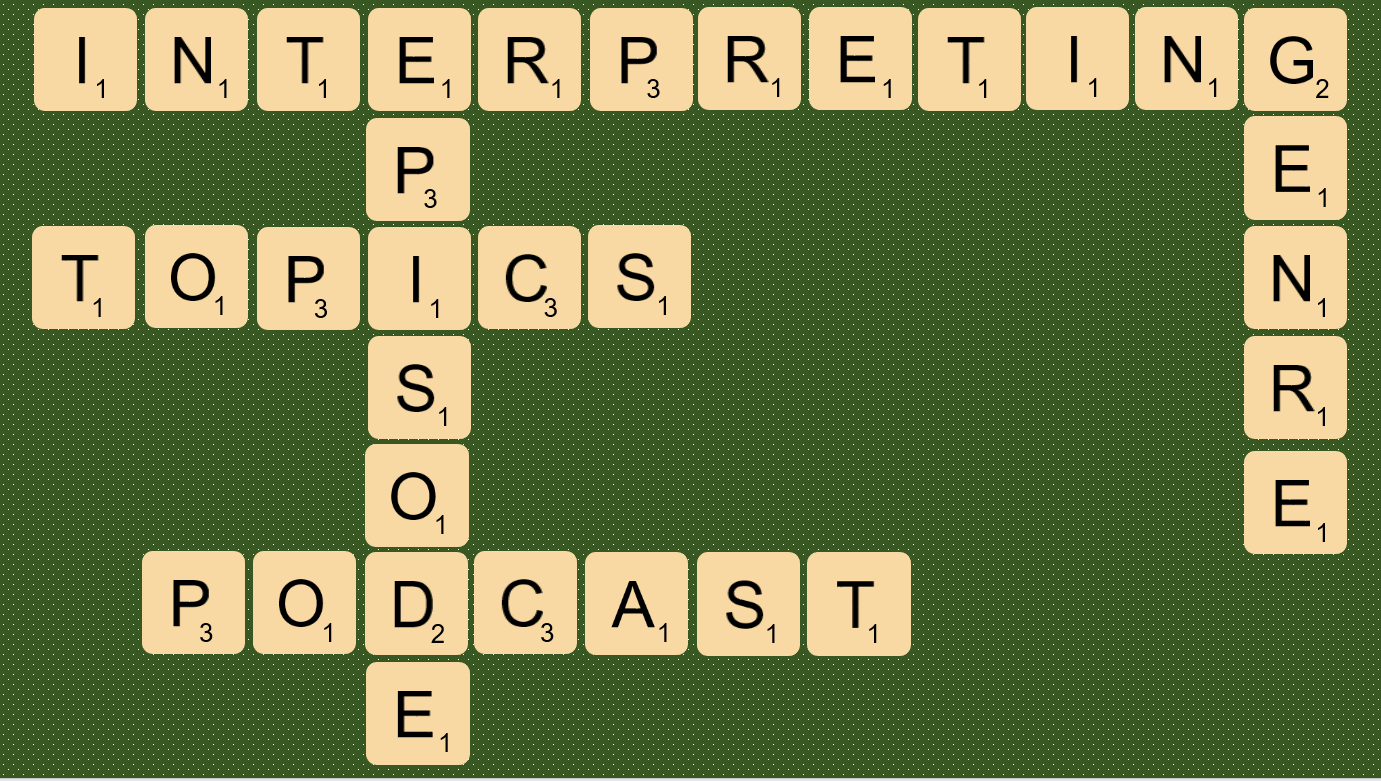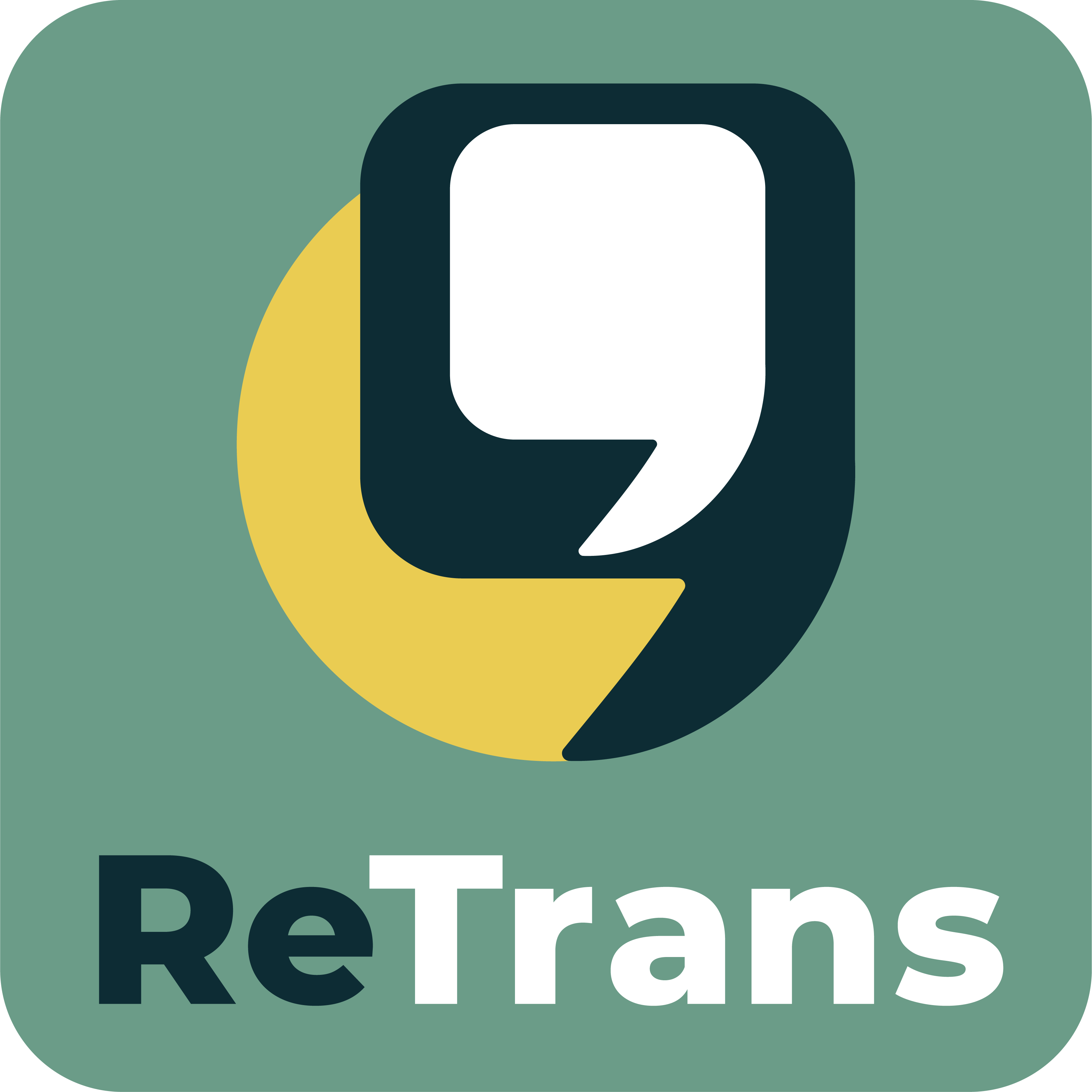Are there any podcast-enthusiasts among us? Well, there is definitely one here – ReTrans. Irrespective of where you look, podcasts have been taking centre stage in recent years across various genres, e.g. news, fiction, true crime or comedy. As easily accessible audio shows in the form of topic-specific episodes produced on a regular basis (monthly, bi-weekly, every other day etc.), podcasts allow audiences to listen in on selected content whenever they feel like it. The podcast hosts’ voices then join us while we are running off our miles on the treadmill, vacuum cleaning our apartment or making our way through traffic to get to work. In what can take a couple of minutes up to several hours, in a single podcast episode almost any topic, e.g. mental health, stock tips, racism, beauty ideals or unsolved mysteries, might become a matter of discussion, depending on the overarching genre. Certain podcast formats privilege a monological “one-person-show” where one host is covering a chosen topic, whereas “buddy podcasts” are set up to display a conversation among two or several hosts. Then again, other formats even feature interviews with invited guests or follow through on narrating a specific storyline.

Turning to translation-specific podcasts, e.g. Meet the Translator, Speaking of Translation, Troublesome Terps or ÜberÜbersetzen (and the list is nowhere near finished here…), two things become clear: First, Translation (Studies) most certainly jumped on the podcasting train! And second: this train definitely has a seat reserved with the name ReTrans on it.
Next stop: starting our own podcast
With our goal in mind, namely to aptly familiarize interpreters, students, and teachers/trainers with the workings of transborder migration zones, ReTrans rolled up its sleeves and got down to work. But how does the production of podcasts really work? Can just anybody host a podcast? How to get started when producing one’s own podcast? And what to consider when one is finally taking the plunge and deciding to become a podcast host? These questions ranked high on the agenda for ReTrans on September 30th, 2022 when Julia Ritter, journalist and podcaster (Die Buch. Der feministische Buchpodcast), organized a workshop for ReTrans project staff and students. Filled with fresh food for thought, we bounced off ideas on possible podcast titles, considered catchy jingles, and most importantly developed a concept that adequately captures and suitably conveys the personal and institutional realities of people living and/or working in transborder migration zones.

Travelling voices…
By inviting people located at different places and stages along European migration routes to share their personal and professional experiences with ReTrans, we’d like to join them on their journey through varying institutional realities, e.g. refugee reception centres, registration authorities, health officials, asylum institutions etc. and (re)trace emerging spaces of Translation under continuously changing geopolitical circumstances.

…in shifting (educational) spaces
Authentically acquainting undergraduate translation and interpreting students with the oftentimes unsteady institutional grounding of crisis communication along migratory roads and the “pop-up” nature shaping Translation spaces in transborder migration zones sometimes might prove challenging. ReTrans therefore sought the opportunity to connect field and classroom work through encouraging interested students in all four ReTrans partner countries to partake in interviewing individuals living and/or working in transit zones travelling on site where possible. In order to be adequately prepped for their involvement, ReTrans students and teachers alike participated in an introductory workshop held by Sonja Pöllabauer and Barbara Heinisch on the matter of “Going into the field”. And here is what we can tell you: as of now, ReTrans partners, staff and students in all four countries keep busy producing the very first episode of our soon to be released podcast series! So don’t miss out on joining us, when it will be out – we’ll make sure to keep you posted on our progress!
In the meantime, let us know why it is that you choose to tune in on Translation podcasts? What topics are most appealing to you when listening to podcasts on interpreting? Do you have any favorite podcasts? Join us on discord and keep us in the loop on your favorite podcasts – see you there!
PS: Check out all the other activities ReTrans is currently planning on our blog: 3–2–1–Go: Meet ReTrans.

Would you like to share your thoughts on the topic with others? Join our ReTrans community on Discord and exchange ideas with like-minded people! Learn more
Author: Maria Bernadette Zwischenberger (University of Vienna, Centre for Translation Studies)
